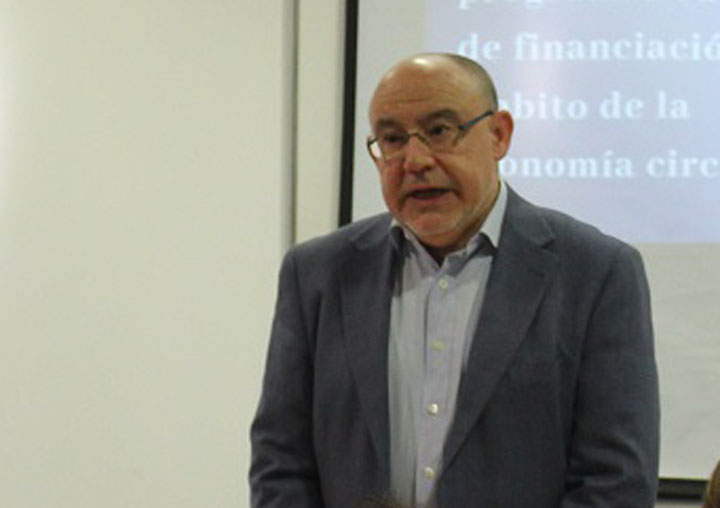
The general director of Economy of the Generalitat Valenciana, José Vicente Todolí, has highlighted that the Network of Chairs contributes to “moving towards a more competitive economic model, based on knowledge, innovation and openness to the outside, with the aim of achieving a more sustainable model, both from an environmental, productive and social point of view.”
Todolí made these statements during the closing of the virtual balance sheet of the fourth year of activities of the Network of Chairs for the Transformation of the Economic Model, in which he thanked the work of the teams of the five chairs of the Valencian public universities that make up the Network. “We understand these chairs as a think tank, without losing their academic character, and we want to go hand in hand with universities in contributing new values and talents,” he explained, “to make the change in the economic model a reality. ”.
Prior to the general director's intervention, the different directors participated and presented the most relevant conclusions of their work during the 2023 academic year and the main contributions to improving the Valencian economic model.
Thus, they have debated the current challenges of the Valencian economic model and have discussed relevant topics such as the circular economy, mobility, logistics, infrastructure, innovation, digitalization, technology transfer, information processing, artificial intelligence, social innovation or sustainability, among others.
The director of the Chair of the University of Valencia, Francesc Hernández, has presented the research work carried out on the circular economy in various productive sectors, the management of wastewater treatment facilities through digitalization and machine learning in the Valencian Community, and the viability of implementing a circular economy model in the Valencian industry, highlighting the agri-food sector.
Next, the director of the Chair of the University of Alicante, Paloma Taltavull, has focused on the lines of research carried out on the global transformation and the infrastructures to face it at an international level, the effects of the mobility of retirees on the real estate market in Alicante, the detailed analysis of the Valencian toy sector as a case study, and the evaluation of trade, transport and logistics in a context of international crisis.
For his part, the director of the Chair of the Polytechnic University of Valencia, José Manuel Bernabeu, has reviewed the studies carried out on the evolution and state of business digitalization in the Valencian Community, the relationship between digitalization and business performance through of the analysis of public subsidies, as well as the analysis of business models based on the exploitation of open data in the Valencian economy.
Likewise, the co-director of the Chair of the Miguel Hernández University of Elche, María José López, has presented the results of the work carried out on mapping the innovative panorama in Alicante through an analysis of networks of collaborations in research and development in her province, in addition to other projects on technology transfer and the success stories of ApoEberrant, IDB, agricultural biodiversity, genetic improvement of varieties and safe aquaculture.
Finally, the director of the Chair of Transformation of the Economic Model of the Universitat Jaume I, Luis Martínez, has shown the main axes of research in areas related to the sustainable development, growth and innovation of the Valencian Community through a bibliometric review since 2000, as well as in the analysis of the trajectory and future of the ceramic cluster beyond the energy crisis. In addition, the application of artificial intelligence to the design of ceramic products has also been addressed through the Aitister success story.









